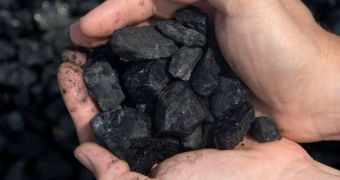This past Sunday, a pipe under a pond at a plant in Eden, North Carolina broke, and tons of coal ash ended up working their way into the state's Dan River.
Duke Energy, i.e. the company that owns the plant responsible for the spill, estimates that, all in all, somewhere between 50,000 and 82,000 tons of coal ash hit the environment.
Another 24 to 27 million gallons (approximately 90,849 to 102,206 cubic meters) of basin water are said to have spilled into the Dan River together with the coal ash, Los Angeles Times reports.
Talking to the press, Duke Energy said that, at one point, workers and specialists sent to the area managed to set in place a plug, and thus reduced the amount of coal ash flowing into said water source.
However, it would appear that, on Tuesday, the faulty pipe was yet to be repaired and the spill entirely contained, the same source details.
For those unaware, coal ash is a byproduct of burning said fossil fuel for energy. Studies have shown that it is very toxic and consequently dangerous, which is why it is usually collected and stored together with water in ponds of a considerable size.
Thus, the storage pond from which coal ash spilled into the Dan River is said to cover an area of about 27 acres (roughly 10.9 hectares).
Despite the impressive amount of coal ash and accompanying basin water that hit the Dan River, authorities and Duke Energy claim that local drinking water supplies have not in any way been compromised either in upstream or in downstream communities.
“All water leaving our treatment facility has met public health standards. We do not anticipate any problems going forward in treating the water we draw from the Dan River,” Barry Dunkley, division director of water and wastewater treatment for Danville Utilities, told the press.
Specialists working with the North Carolina Department of Environment and Natural resources are now analyzing water samples collected both upstream and downstream from the spill, and hope they will soon be able to offer information concerning the impact of this incident on the environment.
“Our chief concerns are that we do everything we can to assist in controlling this spill and assessing its damage,” Department Secretary John Skvarla wished to stress.

 14 DAY TRIAL //
14 DAY TRIAL //